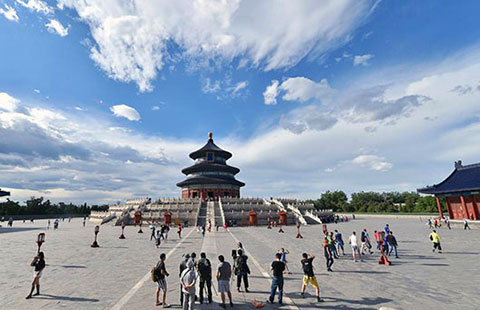Facility 'too close' to homes
By LAN LAN (China Daily) Updated: 2015-08-15 08:09An apartment project developed by China's largest residential property developer China Vanke Co is less than 1 kilometer from the warehouse, while another project is about 800 meters away, according to the 21st Century Business Herald.
Bao Tiping, a senior engineer with China Huanqiu Contracting and Engineering Corp, said on Friday that such a distance is far less than national specifications if the warehouse was larger than 550 sq m. Above 1 kilometer is a common practice in planning petrochemical related projects, he said.
"Sometimes haggling over regulations happens," Bao said. "Such a tragedy should have been avoided as it's a new industrial park."
Gong Jiansheng, an official with the Tianjin municipal government, told reporters he had "no knowledge about those details" when questioned on Friday at a news conference in Tianjin.
A preliminary environmental notice to the public in 2013 by the Tianjin Academy of Environmental Sciences said the company's facility covered 46,226 square meters, and included two warehouses, but it did not identify the size of the warehouses.
The notice said the company handles about 70,000 tons of goods annually-20,000 metric tons of hazardous goods and 50,000 metric tons of ordinary goods.
The company, however, had claimed on its website that it had the capacity to handle 1 million tons of cargo annually. The website has not been available since Thursday.
The company passed an environmental assessment conducted by the academy in 2014. The academy declined on Thursday to comment on the assessment.
A summary of the environmental assessment report available online said the company was involved with hazardous and flammable materials, but said the risks were at an "acceptable level". The chemicals were not identified.
One of Ruihai's warehouses was built to store sodium cyanide and toluene diisocyanate, two highly toxic chemicals, according to a report posted on the website of the local environmental monitoring station in 2014.
The devastating blasts in Tianjin also ring alarm bells for other cities and suggest thorough examinations of potential risks are urgently needed to avoid similar tragedies, said Lin Boqiang, dean of the Institute for Studies in Energy Policy at Xiamen University.
- Delegation salutes Tibet anniversary
- Officials are told to act as anti-graft watchdogs
- Great Wall safeguarded in united action
- Vice minister pledges more efforts to improve air quality
- Beijing’s efforts to control air pollution start to pay off
- China's military committed to reform
- Netizens rip singer over baby photos
- Central govt's growing support for Tibet
- Monument to be built on Tianjin blast site
- China and Russia seal raft of energy deals







